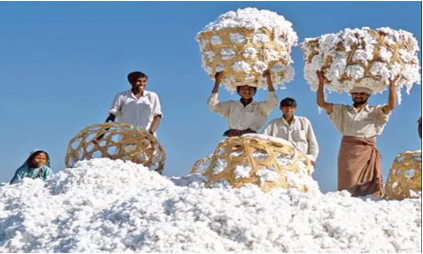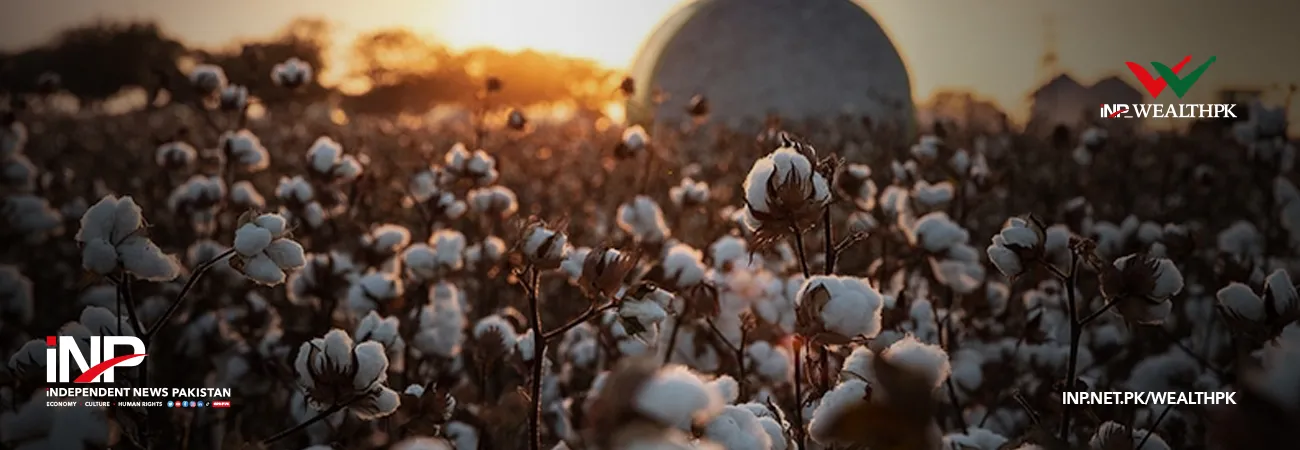INP-WealthPk
Azeem Ahmed Khan
Pakistan has a unique opportunity to reclaim its place in the international cotton market with global demand rising and organic cotton gaining popularity, Prof. Dr. Usman Mustafa, former director at the Pakistan Institute of Development Economics, told Wealth Pakistan.
“Internationally, Pakistan has promising opportunities in markets such as the US, China, and Bangladesh. Bangladesh imports cotton for its garment industry, and the US has now slapped tariffs on Indian textiles, giving us a competitive edge,” he said.

Cotton remains vital for Pakistan’s foreign exchange and for the livelihoods of poor farmers, but its role has been limited by the sugar crop. Once a pillar of Pakistan’s agricultural economy, it is now facing a decline in both yield and value, with production falling from over 11 million bales to 4.5 million.
Pointing to a major factor behind the declining cotton yields, Prof. Usman said the smuggling of uncertified cotton seed varieties has led to widespread infestations of whitefly and other pests. “The introduction of these seeds brought serious insect pest problems, causing setbacks in production,” he noted.
He emphasized the crucial role of seed development, saying that both the private and public sectors must invest in producing certified, localized seeds to replace the harmful smuggled varieties. “Seed is the key, for better yield, for resilience, for everything,” he said.
Highlighting the importance of sustained research and development in agriculture, he said that progress in the field depends on genetic innovation, noting that “without genes, there can be no green.” He also stressed the importance of cotton improvement through climate-adaptive and disease-resistant cotton varieties.
He said Balochistan holds untapped potential for organic cotton due to its low humidity, which reduces the need for pesticides. Cotton from Balochistan can be marketed as pesticide-free, especially for children’s clothing, fetching higher international prices. He also called for the revival of progressive farmer models, where high-performing farmers are supported in seed production and used as examples for broader dissemination.
Prof. Usman said it is wrong to think that farmers do not want to use new technology. The real problem, he explained, lies within the system rather than with the farmers themselves. Even in the same village, one farmer gets 20 kilograms of crop while another gets 80, simply because some receive better support and resources than others.
Pakistan needs better policies that truly support farmers to boost cotton production. If the government does not focus on the needs of cotton growers, it could weaken the economy. He identified southern Punjab, including Multan, Bhakkar, and Dera Ghazi Khan, as traditionally strong cotton zones.
Credit: INP-WealthPk









